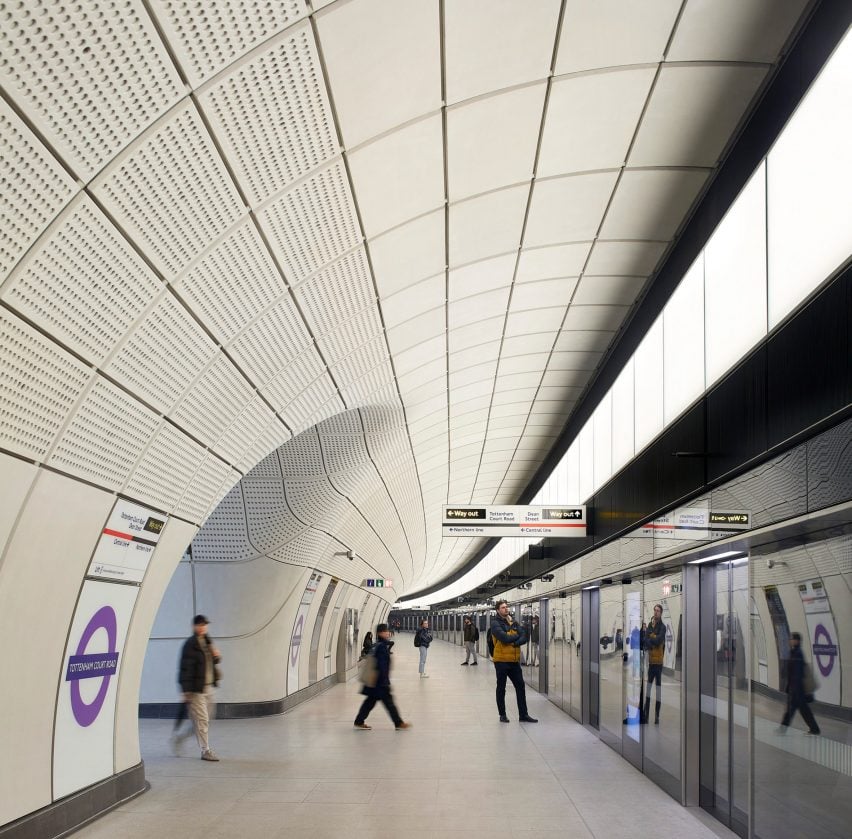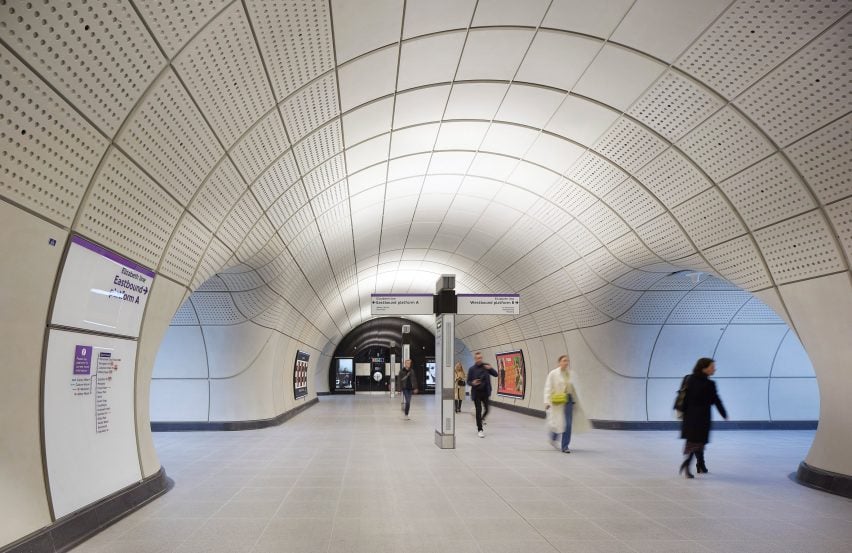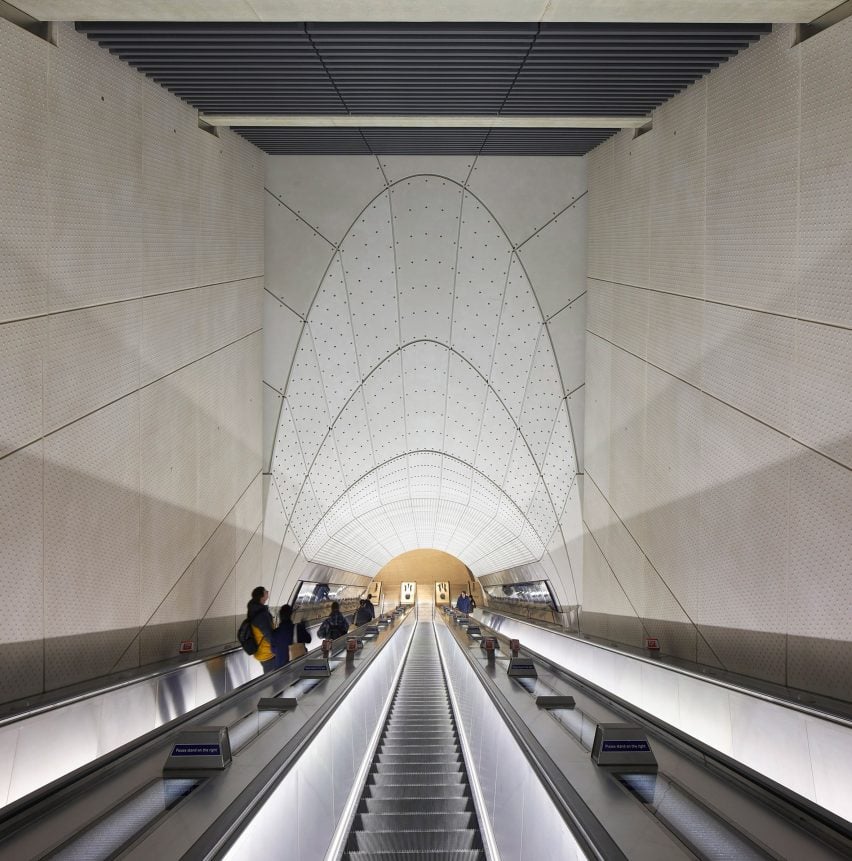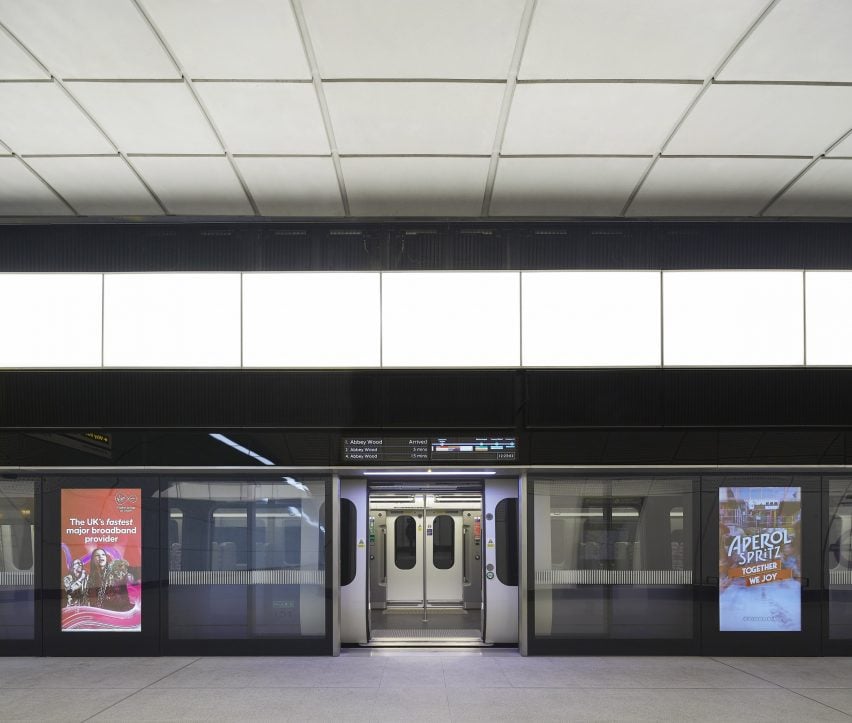London's Elizabeth Line wins 2024 RIBA Stirling Prize
The Elizabeth Line in London designed by architecture studios Grimshaw, Maynard, Equation and AtkinsRéalis has won this year's RIBA Stirling Prize for the UK's best new building.
Described as "a flawless, efficient, beautifully choreographed solution", the Elizabeth Line is the largest expansion to London's underground railway network for more than a century.
The jury named the project, which was led by Grimshaw, Maynard, Equation and AtkinsRéalis, the winner for its success in creating an alternative to the often stressed underground commuting experience.

"The Elizabeth Line is a triumph in architect-led collaboration, offering a flawless, efficient, beautifully choreographed solution to inner-city transport," said Stirling Prize jury chair and RIBA president Muyiwa Oki.
"It's an uncluttered canvas that incorporates a slick suite of architectural components to create a consistent, line-wide identity – through which thousands of daily passengers navigate with ease."
"Descending into the colossal network of tunnels feels like entering a portal to the future, where the typical commuter chaos is transformed into an effortless experience. It rewrites the rules of accessible public transport, and sets a bold new standard for civic infrastructure, opening up the network and by extension, London, to everyone."

The Elizabeth Line runs from Reading across central London to Essex and is used by 700,000 passengers every weekday.
Overall, the complex project included the development of 62 miles of track with 26 miles of tunnels created under central London.
To serve the line, 10 new stations were created that were each designed by a separate architecture studio in collaboration with the co-ordinating central team.
Grimshaw, Maynard, Equation and AtkinsRéalis created an overall design framework to be followed throughout the project, and this unified design becomes stronger the further passengers travel from the station entrances.

"The Elizabeth Line is a piece of infrastructure that has been transformative, not only for London's transport network but also for many people's lives, highlighting the role design plays in elevating our every day," said Grimshaw partner Neill McClements on behalf of the team.
"It is also a recognition of the challenges that our profession faces today – the responsibility we have to rapidly respond to the climate emergency, decarbonise our cities and prioritise social and economic equity," he continued.
"We know this is only achievable through collaboration and the Stirling Prize recognises all of the design and construction teams that have come together to make the project the success that it is."

It is the fourth time that Grimshaw has been shortlisted for the Stirling Prize, with the Eden Project in Cornwall, Amsterdam Bijlmer ArenA station in Amsterdam and London Bridge station in London all having been recognised in previous years.
The studio won the RIBA Building of the Year Award, which was the predecessor of the Stirling Prize, for the Waterloo International railway station in 1994.
Presented since 1996, the Stirling Prize aims to recognise the UK's best new architecture. The Elizabeth Line was shortlisted for this year's award alongside the King's Cross masterplan by Allies and Morrison and Porphyrios Associates, Wraxall Yard by Clementine Blakemore Architects, Park Hill Phase 2 by Mikhail Riches, The National Portrait Gallery by Jamie Fobert and Chowdhury Walk social housing in London by Al-Jawad Pike.
The film was produced by the RIBA and the photography is by Hufton + Crow.